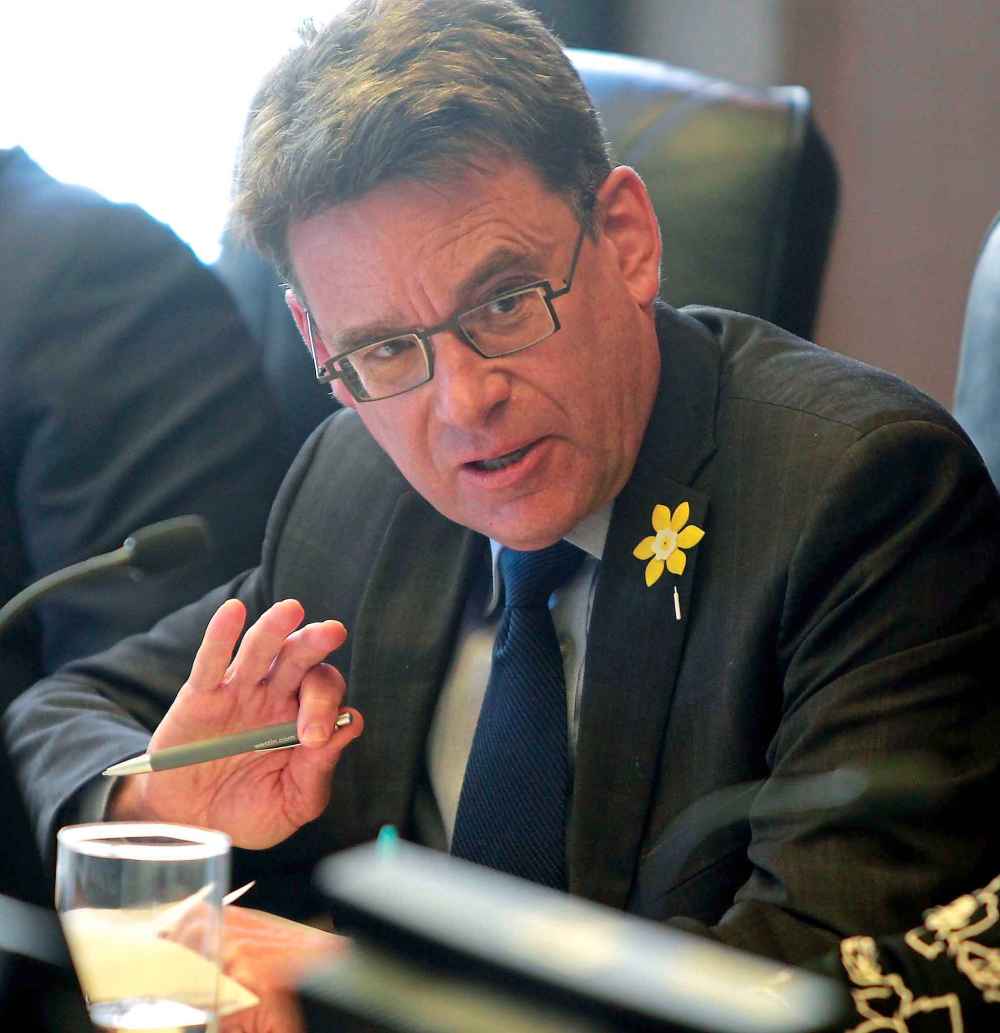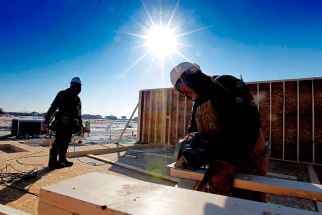Winnipeg impact fee court case nears conclusion
Read this article for free:
or
Already have an account? Log in here »
To continue reading, please subscribe:
Monthly Digital Subscription
$0 for the first 4 weeks*
- Enjoy unlimited reading on winnipegfreepress.com
- Read the E-Edition, our digital replica newspaper
- Access News Break, our award-winning app
- Play interactive puzzles
*No charge for 4 weeks then price increases to the regular rate of $19.00 plus GST every four weeks. Offer available to new and qualified returning subscribers only. Cancel any time.
Monthly Digital Subscription
$4.75/week*
- Enjoy unlimited reading on winnipegfreepress.com
- Read the E-Edition, our digital replica newspaper
- Access News Break, our award-winning app
- Play interactive puzzles
*Billed as $19 plus GST every four weeks. Cancel any time.
To continue reading, please subscribe:
Add Free Press access to your Brandon Sun subscription for only an additional
$1 for the first 4 weeks*
*Your next subscription payment will increase by $1.00 and you will be charged $16.99 plus GST for four weeks. After four weeks, your payment will increase to $23.99 plus GST every four weeks.
Read unlimited articles for free today:
or
Already have an account? Log in here »
Hey there, time traveller!
This article was published 24/02/2020 (2121 days ago), so information in it may no longer be current.
Three years after their legal challenge began, developers fighting to quash Winnipeg’s controversial impact fee will get their final days in court this week.
However, it will likely wait a few more months to learn if the City of Winnipeg will be forced to return the nearly $30 million the levy has already raised.
The Manitoba Home Builders’ Association (MHBA) and Urban Development Institute first launched the legal battle in January 2017, which is expected to have its final court hearing Wednesday.
The developers allege the city lacks the power to impose the fee, which took effect in May 2017 on new homes in some neighbourhoods. They also accuse the city of discriminating through the way it applied the fee, since it’s only charged in some areas.

They allege the city also breached contracts, since some developments were already approved when the fee was added on to the price of some new homes.
“After the development was approved and everything was agreed upon, suddenly… all these houses are going to cost, ($5,000 to) $15,000 more. That’s a breach of contract,” Mike Moore, past-president of the MHBA, told reporters during a court break Monday.
If the fee is quashed, Moore said developers could then return the payments to homeowners, which many have already committed in writing to do.
The city has long-argued the impact fees, also known as growth fees, are needed to ensure new development pays for its demands on services and infrastructure, while developers argue new builds already cover those costs.
“After the development was approved and everything was agreed upon, suddenly… all these houses are going to cost, ($5,000 to) $15,000 more. That’s a breach of contract.”
– Mike Moore, former president of the MHBA
In court Monday, the city’s legal team argued Winnipeg can impose the fee, and did so fairly. Orvel Currie also claimed there’s no clear way within the current legal battle to return the money to homeowners.
“It’s our position that restitution is not available,” the lawyer said.

The impact fee currently adds $56.51 per square metre, or $5,249.96 per 1,000 square feet, to the price of affected homes. By the end of 2019, it had raised $29.7 million.
So far, the city has opted against using that revenue until the legal challenge ends.
A judge’s decision on the matter is expected to take another four to six more months.
Winnipeg’s property and development committee chairman said council could debate tapping into the revenue even before the court matter is resolved.
“As the years go by, there is certainly more pressure to start using at least some of this money that’s been collected to do the type of projects that we need to do,” said Coun. Brian Mayes (St. Vital).
The councillor listed a new Waverley West fire hall and a Sage Creek area community centre as potential projects that could be worthy of taking such a spending risk.
Mayes said he remains convinced the municipality has the power to impose the fee anywhere it wishes within Winnipeg. He also supports the original plan to charge it on new commercial and infill developments, implementation phases that have stalled since the court challenge began.
“We can’t pretend infill has no impact. People moving to infill call an ambulance, they flush the toilet, they drive on the road. There is a cost to infill,” said Mayes.
City spokesman Kalen Qually confirmed council approval would be required to spend any of the impact fee reserve fund.
joyanne.pursaga@freepress.mb.ca

Born and raised in Winnipeg, Joyanne loves to tell the stories of this city, especially when politics is involved. Joyanne became the city hall reporter for the Winnipeg Free Press in early 2020.
Our newsroom depends on a growing audience of readers to power our journalism. If you are not a paid reader, please consider becoming a subscriber.
Our newsroom depends on its audience of readers to power our journalism. Thank you for your support.














